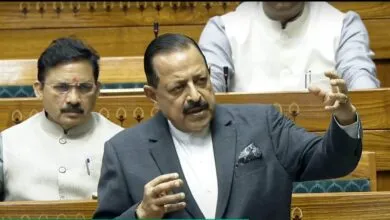8th Pay Commission Update: Performance Based Salary may be introduced for Government Employees

With discussions around salary revisions gaining momentum, the possibility of the 8th Pay Commission is a topic of significant interest among government employees. The 7th Pay Commission, implemented in 2016, brought notable changes, increasing the minimum salary from ₹7,000 to ₹18,000 per month and raising the maximum salary for top officials to ₹2.5 lakh per month. Naturally, employees are looking forward to the next revision.
What Is a Pay Commission?
A Pay Commission is a government-appointed body responsible for reviewing and recommending salary structures for Central government employees. Since India’s independence, there have been seven Pay Commissions, each typically spanning a decade. These recommendations impact the earnings and living standards of millions of employees and pensioners across the country.
Will There Be an 8th Pay Commission?
As of now, there’s no official confirmation about the establishment of the 8th Pay Commission. Historically, a new Pay Commission is constituted every 10 years. If this trend continues, the 8th Pay Commission could be announced soon and implemented by 2026. In Parliament, the Ministry of Finance recently stated that the 8th Pay Commission is “presently not under consideration.” This has fueled speculation about the introduction of a new system for salary revisions.
However, the government has hinted at exploring alternative approaches. Some officials suggest that future salary revisions might be linked to performance or inflation rates instead of relying on traditional Pay Commissions. Until a formal announcement is made, employees remain in suspense.
Could a New Mechanism Replace the 8th Pay Commission?
Instead of waiting for a decade, the government may adopt a performance-based model or a mechanism tied to inflation rates. This approach could allow for regular salary adjustments. However, no clear details have emerged, leaving employees uncertain about what lies ahead.
What to Expect from the 8th Pay Commission?
If the 8th Pay Commission is established, here are some potential recommendations that government employees might anticipate:
- Higher Minimum Salary
- Unions are demanding an increase in the minimum salary from ₹18,000 to ₹26,000–₹30,000 per month, citing rising inflation and higher living costs.
- Revised Fitment Factor
- The current fitment factor is 2.57. This may rise to 3.5 or 3.8, resulting in higher pay scales.
- Improved Dearness Allowance (DA)
- DA, revised twice annually to offset inflation, could become more dynamic and responsive under the new commission.
- Pension Revisions
- Pensioners, especially those who retired before the 7th Pay Commission, might see better parity in pensions, addressing long-standing demands.
- Updates to Allowances
- House Rent Allowance (HRA) and Travel Allowance (TA) may be revised to align with current housing and transportation costs.
Economic Impact of the 8th Pay Commission
Implementing recommendations from a Pay Commission is a costly affair. For example, the 7th Pay Commission increased government spending by ₹1 lakh crore annually. A similar rise is expected with the 8th Pay Commission.
Pros:
- Higher salaries mean increased disposable income, which can boost consumer spending.
- Greater demand for goods and services may drive economic growth.
Cons:
- A rise in government expenditure could strain public finances.
- Managing the fiscal deficit becomes a challenge, particularly during periods of economic slowdown.
Challenges and Concerns
- Fiscal Deficit
- Higher salaries could widen the fiscal deficit, requiring careful budget management.
- Private Sector Pay Gap
- Salary hikes for government employees may increase the gap with private-sector pay, raising fairness concerns.
- Impact on State Budgets
- States often follow the Central government’s lead on pay revisions, potentially straining their finances, especially for revenue-deficient states.
Conclusion
The future of the 8th Pay Commission remains uncertain. While the government could follow the traditional approach, there’s also a possibility of introducing a new mechanism for regular salary revisions. Whatever the outcome, millions of employees and pensioners are eagerly waiting for an announcement. For now, government employees continue to hope for good news that will address inflation, improve living standards, and secure their financial future.
